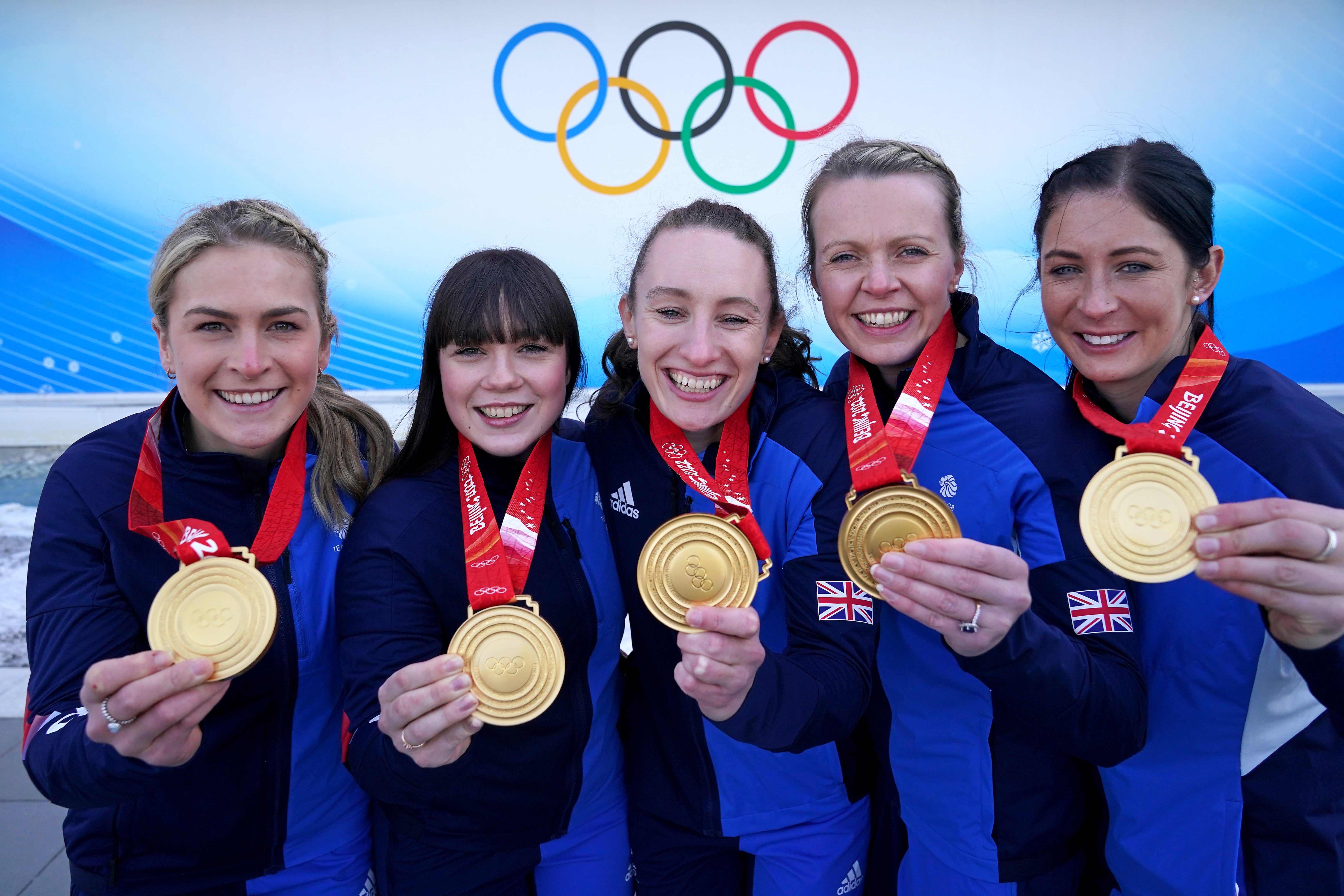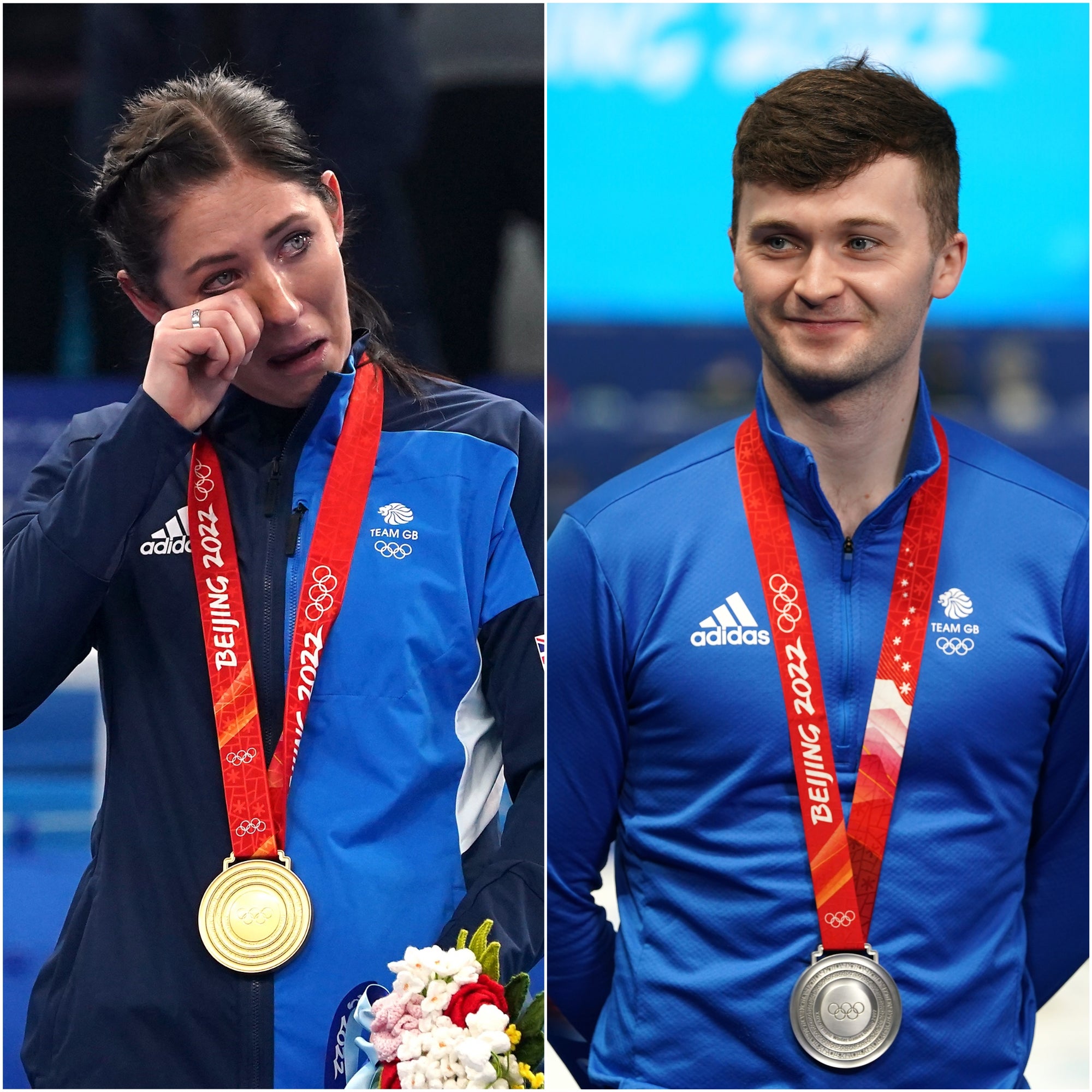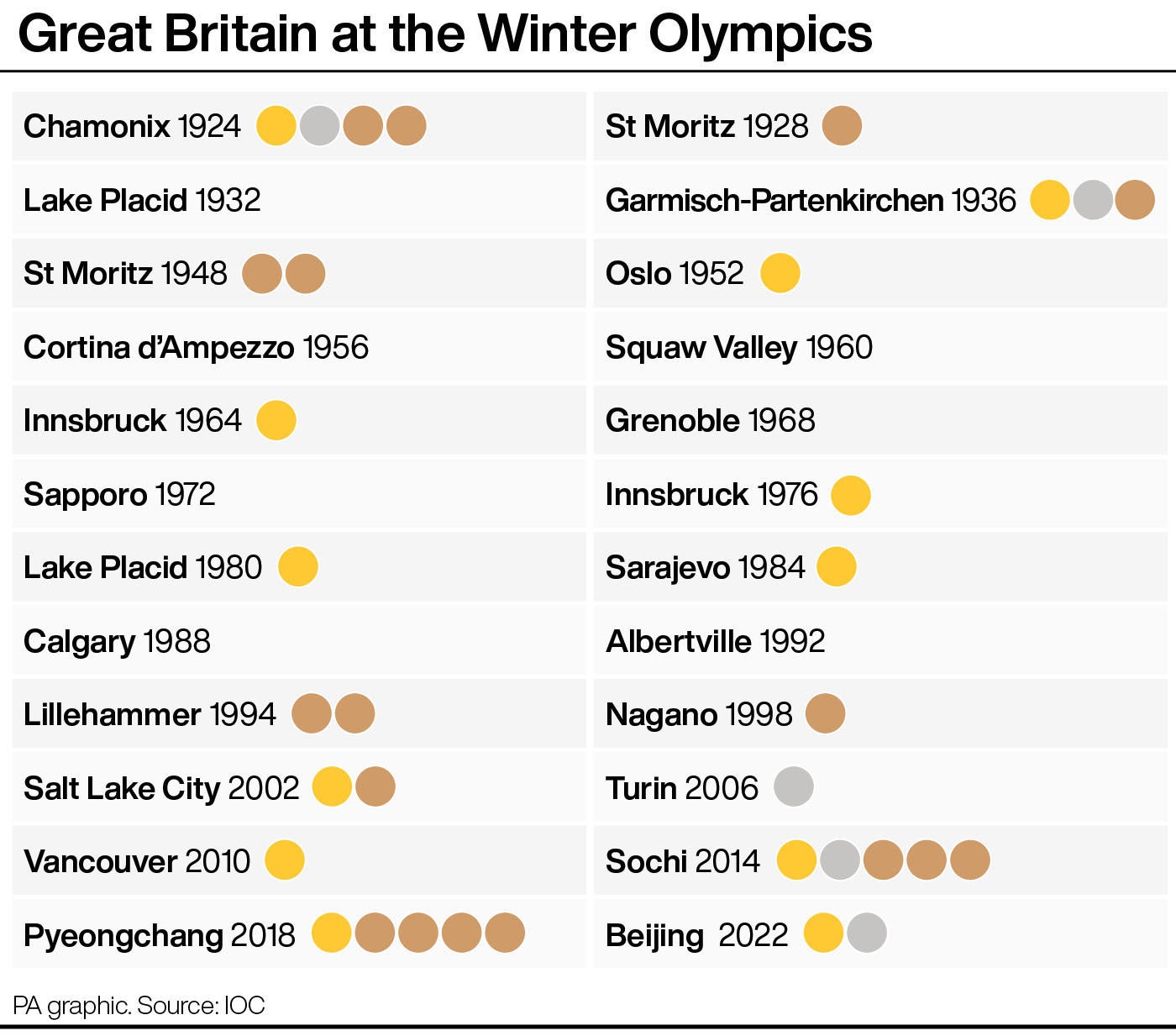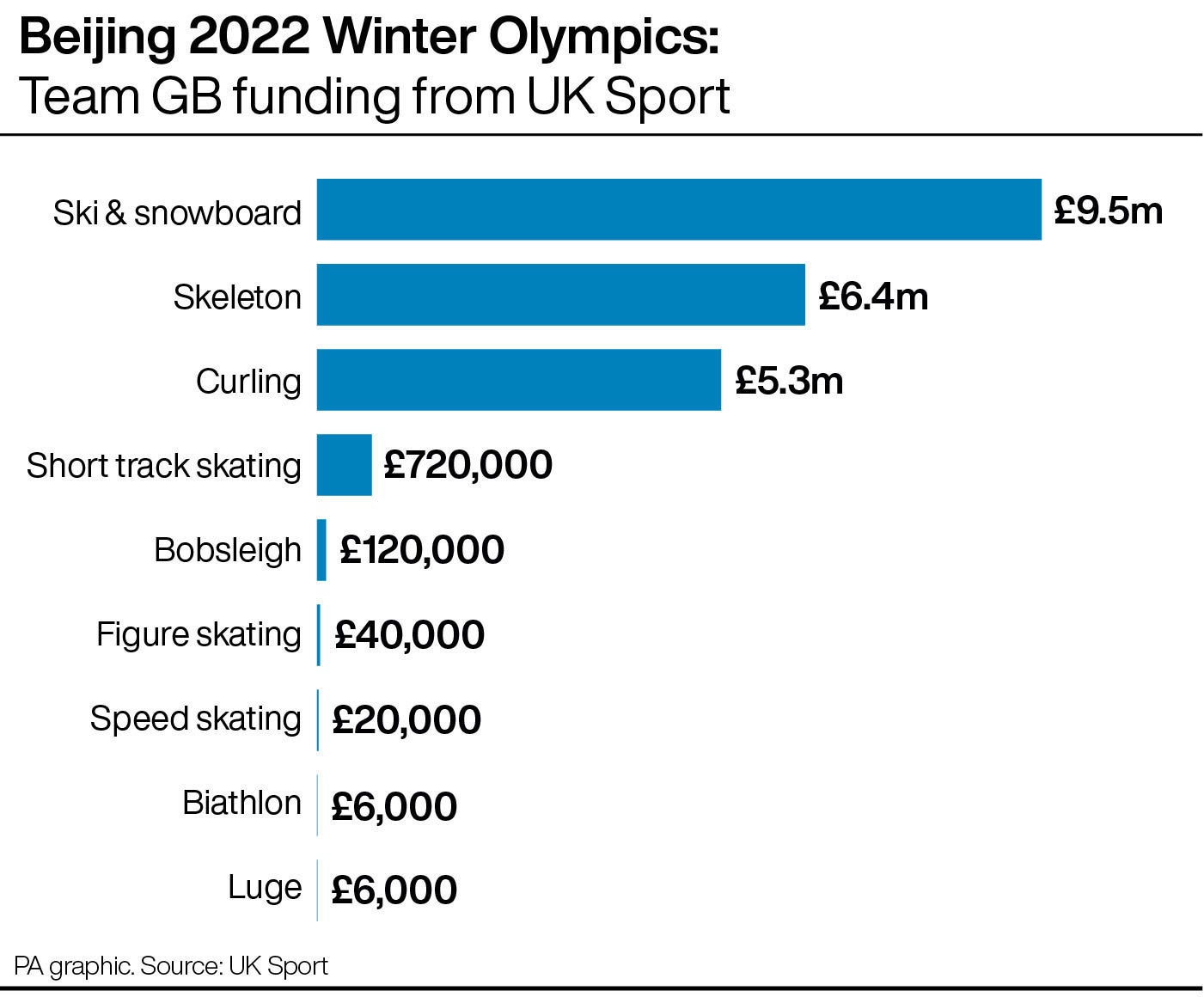Team GB fall short of Winter Olympic medal target despite curling continuing gold streak
Great Britain have struck gold at the last four Winter Games but UK Sport’s pre-Games target of three to seven medals was not met in Beijing

Your support helps us to tell the story
From reproductive rights to climate change to Big Tech, The Independent is on the ground when the story is developing. Whether it's investigating the financials of Elon Musk's pro-Trump PAC or producing our latest documentary, 'The A Word', which shines a light on the American women fighting for reproductive rights, we know how important it is to parse out the facts from the messaging.
At such a critical moment in US history, we need reporters on the ground. Your donation allows us to keep sending journalists to speak to both sides of the story.
The Independent is trusted by Americans across the entire political spectrum. And unlike many other quality news outlets, we choose not to lock Americans out of our reporting and analysis with paywalls. We believe quality journalism should be available to everyone, paid for by those who can afford it.
Your support makes all the difference.Curling saved an otherwise disappointing Winter Olympics for Great Britain as Eve Muirhead and Bruce Mouat led their rinks to gold and silver medals respectively.
Those were the only British medals in Beijing, a step back from five-medal hauls at each of the last two winter Games and short of UK Sport’s target of between three and seven.
Here the PA news agency looks at some of the key data behind Great Britain’s performances in Beijing.

UK Sport’s world class programme, aimed at supporting athletes with podium potential, allocated £5.25million to curling which was rewarded handsomely.
Mouat and Jennifer Dodds were edged out in the mixed doubles, finishing fourth, but Mouat returned to lead his side to the men’s final before a tense defeat to Sweden left them with silver medals.
Dodds was then part of Muirhead’s team who hammered Japan 10-3 in Sunday’s women’s final to finish on top of the podium.
That gold and silver return is enough to rank Beijing among the top five performances at the Winter Games – behind Sochi in 2014, early stagings at Chamonix and Garmisch-Partenkirchen and arguably PyeongChang 2018, where a solitary gold was supplemented by four bronze medals.

Gold medals at four successive Winter Olympics is a new British record, with female athletes responsible for all of those and every British gold since Christopher Dean partnered Jayne Torvill to skating success in 1984.
The overall feeling, though, was of frustration – nowhere more so than in skeleton after British medals at five straight Winter Olympics prior to Beijing, including two golds for Lizzy Yarnold and one for Amy Williams.
Shelley Rudman won silver in 2006 and Alex Coomber’s 2002 floodgate-opening bronze was matched in 2018 by Laura Deas, sharing the podium with Yarnold, and Dominic Parsons taking bronze in the men’s event.
Britain’s skeleton team this time around were supported by over £6.4million in funding from the world class programme but Deas was almost four seconds off the pace in 19th, with Brogan Crowley 22nd, while in the men’s event Matt Weston and Marcus Wyatt finished 15th and 16th respectively.
Bobsleigh, by contrast, received only £120,000 of UK Sport funding, but Brad Hall, Greg Cackett, Taylor Lawrence and Nick Gleeson finished a creditable sixth in the four-man event, 0.63 seconds outside the medals over four runs.

Hall and Gleeson were 11th in the two-man event after spectacularly crashing during the third run with Mica McNeill and Montell Douglas 17th in the women’s equivalent.
Skiing and snowboarding shared the largest award from the world class programme, over £9.5m, with hopes boosted by Dave Ryding’s recent World Cup slalom win in Kitzbuhel and previous freestyle bronze medals for Izzy Atkin and boarders Jenny Jones and Billy Morgan.
Ryding finished 13th after a mistake on his first run, leaving hopes resting on the tricksters.
Kirsty Muir reached two finals, finishing fifth in big air and eighth, one place ahead of Katie Summerhayes, in slopestyle, with finals also for Makayla Gerken Schofield in the moguls and Zoe Atkin and Gus Kenworthy in the half-pipe.
- Britain finished 19th in the medal table, with their lowest tally since winning a solitary gold in 2010.
- However, Team GB have won golds at four straight Winter Olympics for the first time thanks to Amy Williams in 2010, Lizzy Yarnold in 2014 and 2018 - all in skeleton - and now Team Muirhead.
- Women have won all of Britain's Winter Olympic golds since 1984. The last man to win gold for Great Britain was Christopher Dean, who won alongside Jayne Torvill.
Reigning world champion Charlotte Bankes was edged out in the women’s snowboard cross quarter-final and, with Huw Nightingale, in the semis of the team event, while Katie Ormerod was unable to reach the finals in big air or slopestyle.
A £700,000 investment through UK Sport’s athlete support plan produced only one finalist in short track, Farrell Treacy placing ninth in a madcap men’s 1500 metres – a result matched by a long track speed skating programme granted only £20,000 thanks to Cornelius Kersten in the 1,000m.
Lilah Fear and Lewis Gibson managed a 10th place in ice dance, a fair return on figure skating’s £40,000 funding.
Cross country skiing also received little in the way of financial support, with Andrew Musgrave’s 12th place in the 50km freestyle the best result in Beijing.
Join our commenting forum
Join thought-provoking conversations, follow other Independent readers and see their replies
Comments